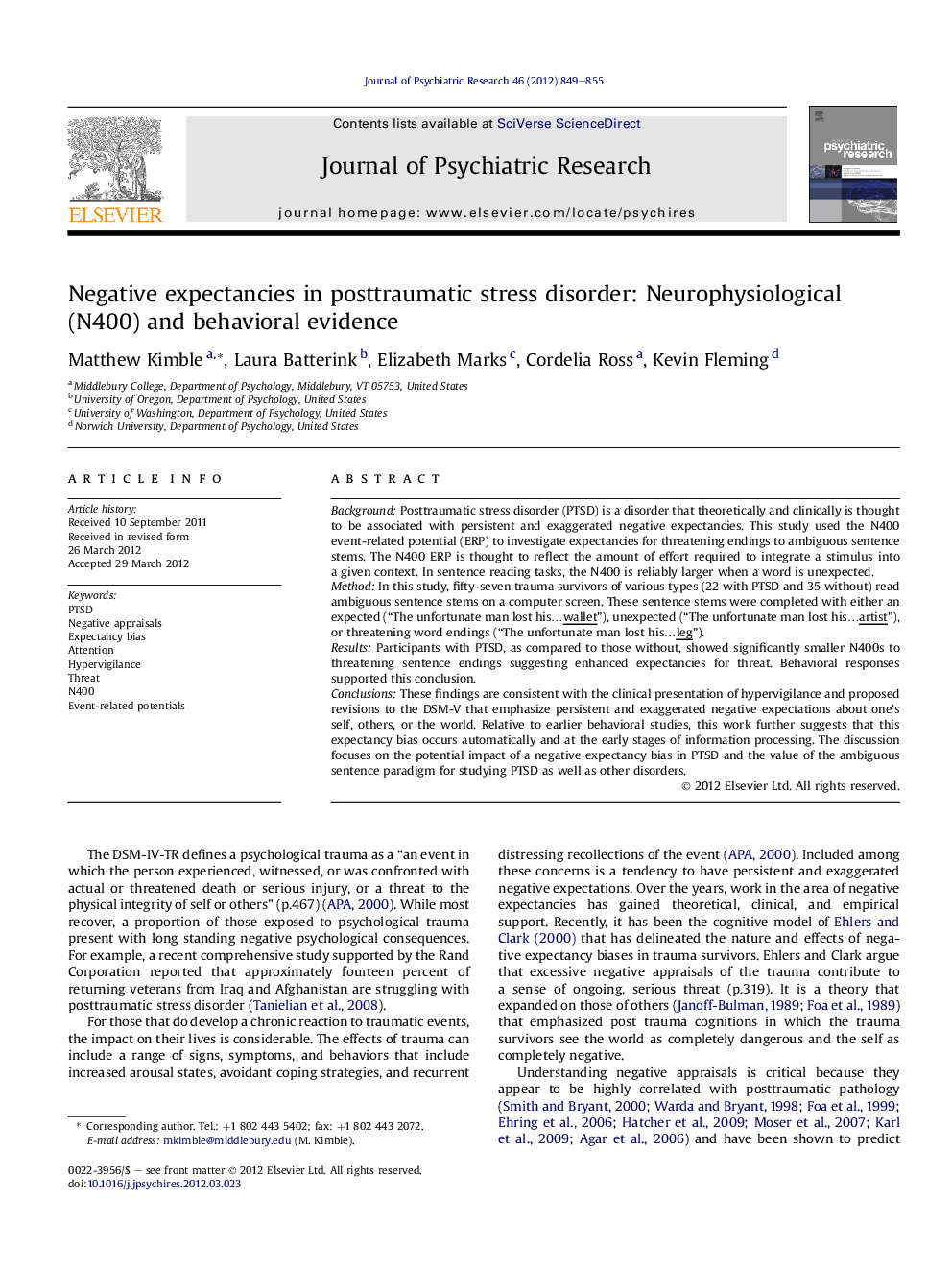| Article ID | Journal | Published Year | Pages | File Type |
|---|---|---|---|---|
| 326533 | Journal of Psychiatric Research | 2012 | 7 Pages |
BackgroundPosttraumatic stress disorder (PTSD) is a disorder that theoretically and clinically is thought to be associated with persistent and exaggerated negative expectancies. This study used the N400 event-related potential (ERP) to investigate expectancies for threatening endings to ambiguous sentence stems. The N400 ERP is thought to reflect the amount of effort required to integrate a stimulus into a given context. In sentence reading tasks, the N400 is reliably larger when a word is unexpected.MethodIn this study, fifty-seven trauma survivors of various types (22 with PTSD and 35 without) read ambiguous sentence stems on a computer screen. These sentence stems were completed with either an expected (“The unfortunate man lost his…wallet”), unexpected (“The unfortunate man lost his…artist”), or threatening word endings (“The unfortunate man lost his…leg”).ResultsParticipants with PTSD, as compared to those without, showed significantly smaller N400s to threatening sentence endings suggesting enhanced expectancies for threat. Behavioral responses supported this conclusion.ConclusionsThese findings are consistent with the clinical presentation of hypervigilance and proposed revisions to the DSM-V that emphasize persistent and exaggerated negative expectations about one's self, others, or the world. Relative to earlier behavioral studies, this work further suggests that this expectancy bias occurs automatically and at the early stages of information processing. The discussion focuses on the potential impact of a negative expectancy bias in PTSD and the value of the ambiguous sentence paradigm for studying PTSD as well as other disorders.
